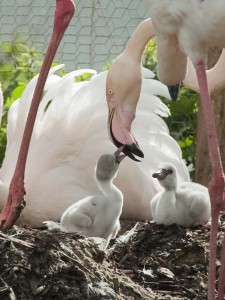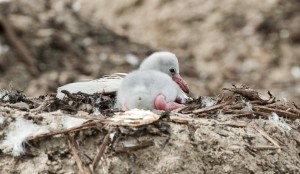THE Queen will take to the waters of the Albert Dock in one of Liverpool’s famous Yellow Duckmarines during her Diamond Jubilee tour of Merseyside next week.
She will embark on the famous craft before taking lunch in the Maritime museum.
The half-hour ride will allow the Queen and the Duke of Edinburgh to see the crowds before splashdown in the world heritage site.
The royal party will also be treated to a commentary during their ride in one of the amphibious vehicles, originally designed in the 1940s to take troops from ship to shore during World War II.
Jerry Goldman, managing director of the Yellow Duckmarine, liaised with the Merseyside Lord Lieutenant’s office to finalise the details for the VIP passengers.
There is no better way for the Queen to see Liverpool than from a Yellow Duckmarine.
"The Queen will be doing a short tour round the dock and the crowds will have a great opportunity to see her.
"We’ve already decided who the driver will be and picked a crew member to provide the live commentary.
"Normally these will lead the tourists in a rendition of the Beatles’ Yellow Submarine, but I’m not sure we’ll be doing that with the Queen."
Her Majesty arrives in Merseyside next Thursday as part of her progress round the UK to mark her 60 years on the throne.
The Queen and Prince Philip will also visit and officially open the Orford Jubilee Park in Warrington
She will embark on the famous craft before taking lunch in the Maritime museum.
The half-hour ride will allow the Queen and the Duke of Edinburgh to see the crowds before splashdown in the world heritage site.
The royal party will also be treated to a commentary during their ride in one of the amphibious vehicles, originally designed in the 1940s to take troops from ship to shore during World War II.
Jerry Goldman, managing director of the Yellow Duckmarine, liaised with the Merseyside Lord Lieutenant’s office to finalise the details for the VIP passengers.
There is no better way for the Queen to see Liverpool than from a Yellow Duckmarine.
"The Queen will be doing a short tour round the dock and the crowds will have a great opportunity to see her.
"We’ve already decided who the driver will be and picked a crew member to provide the live commentary.
"Normally these will lead the tourists in a rendition of the Beatles’ Yellow Submarine, but I’m not sure we’ll be doing that with the Queen."
Her Majesty arrives in Merseyside next Thursday as part of her progress round the UK to mark her 60 years on the throne.
The Queen and Prince Philip will also visit and officially open the Orford Jubilee Park in Warrington










